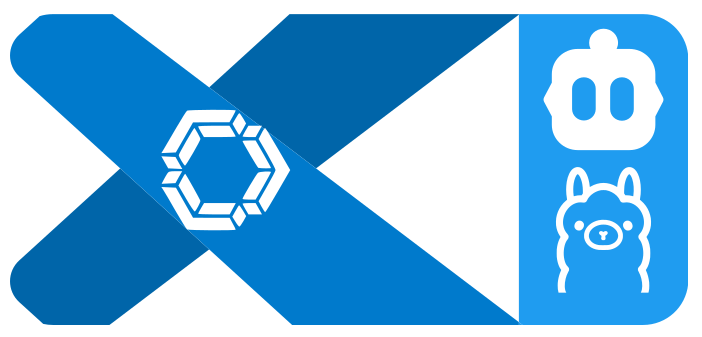
Vibe Coding!
My vibe coding setup.
Introduction
The barrier to entry for coding is lower than ever. Professional coders are using AI enabled tools with a monthly, most with some sort of monthly or volume based licesning. For my personal (non-work) environment, I am currently using Visual Studio Code (VS Code), with Continue.dev, Cline, Ollama, and OpenRouter to leverage AI to help with ideas, scaffolding, sanity checks, code review, and other things that AI makes possible that otherwise would not be possible as a one-man team.
Prerequisites
- Visual Studio Code
- Ollama - Running a my gaming desktop, since it has a nice GPU
Install Continue and Cline VS Code Extensions
Now, let's install the two main extensions that will transform VS Code into an AI-powered coding environment:
- Open VS Code
- Click on the Extensions tab in the left sidebar (or press Ctrl+Shift+X)
- Search for "Continue.dev" and install it
- Search for "Cline" and install it
Configure Continue.dev with Ollama Models
Continue.dev gives us a few features, but the best is the autocompletion. Continue.dev needs to be configured to use the AI models provided by Ollama:
-
First, download the recommended models using the terminal:
# Download DeepSeek R1 (7B) for chat mode ollama pull deepseek-coder:6.7b # Download Qwen 2.5 Coder (1.5B) for code completion ollama pull qwen2.5-coder:7bNote: Make sure to check Ollama's library for the latest available models and subvariants.
-
Open VS Code
- Click on the Extensions tab in the left sidebar (or press Ctrl+Shift+X)
- Search for "Continue.dev" and install it
- Open the Continue extension in VS Code
- Close the "Create Assistant Model" dialog if it appears
- Click on the cube icon to configure the models
-
Configure the chat model (DeepSeek R1):
- name: DeepSeek R1 provider: ollama model: deepseek-coder:6.7b apiBase: http://192.168.50.50:11434/ #Only necessary if you host ollama on another machine -
Configure the code completion model (Qwen 2.5 Coder):
- name: qwen 2.5 coder provider: ollama model: qwen2.5-coder:7b apiBase: http://192.168.50.50:11434/ #Only necessary if you host ollama on another machine roles: - autocomplete -
Save the changes
Set Up Cline
Cline provides additional AI capabilities like multi-file editing and reasoning:
- Click on the Cline icon in the VS Code sidebar
- Register for a Cline account using Google or GitHub
- Authorize access to Cline
- You'll receive free trial credits to use with powerful models
Test Your Setup
Let's test if everything is working correctly:
- Create a new Python file (e.g., sample.py)
- Start typing a simple function and observe the code completion suggestions (from Continue.dev)
- Try using the chat mode in Cline to ask coding questions or generate code
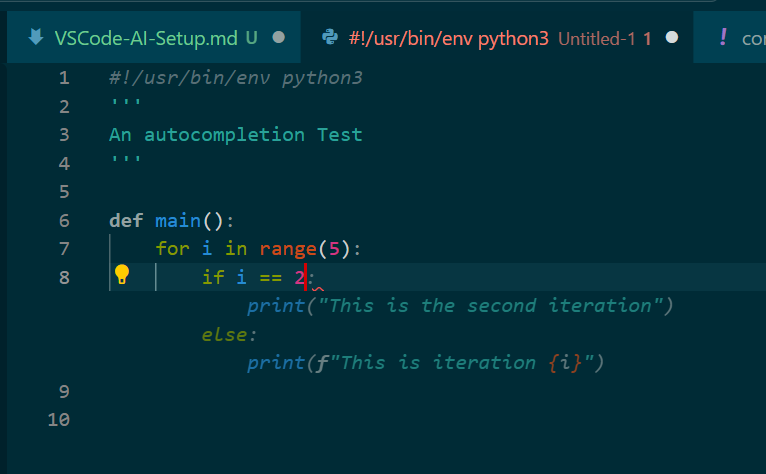
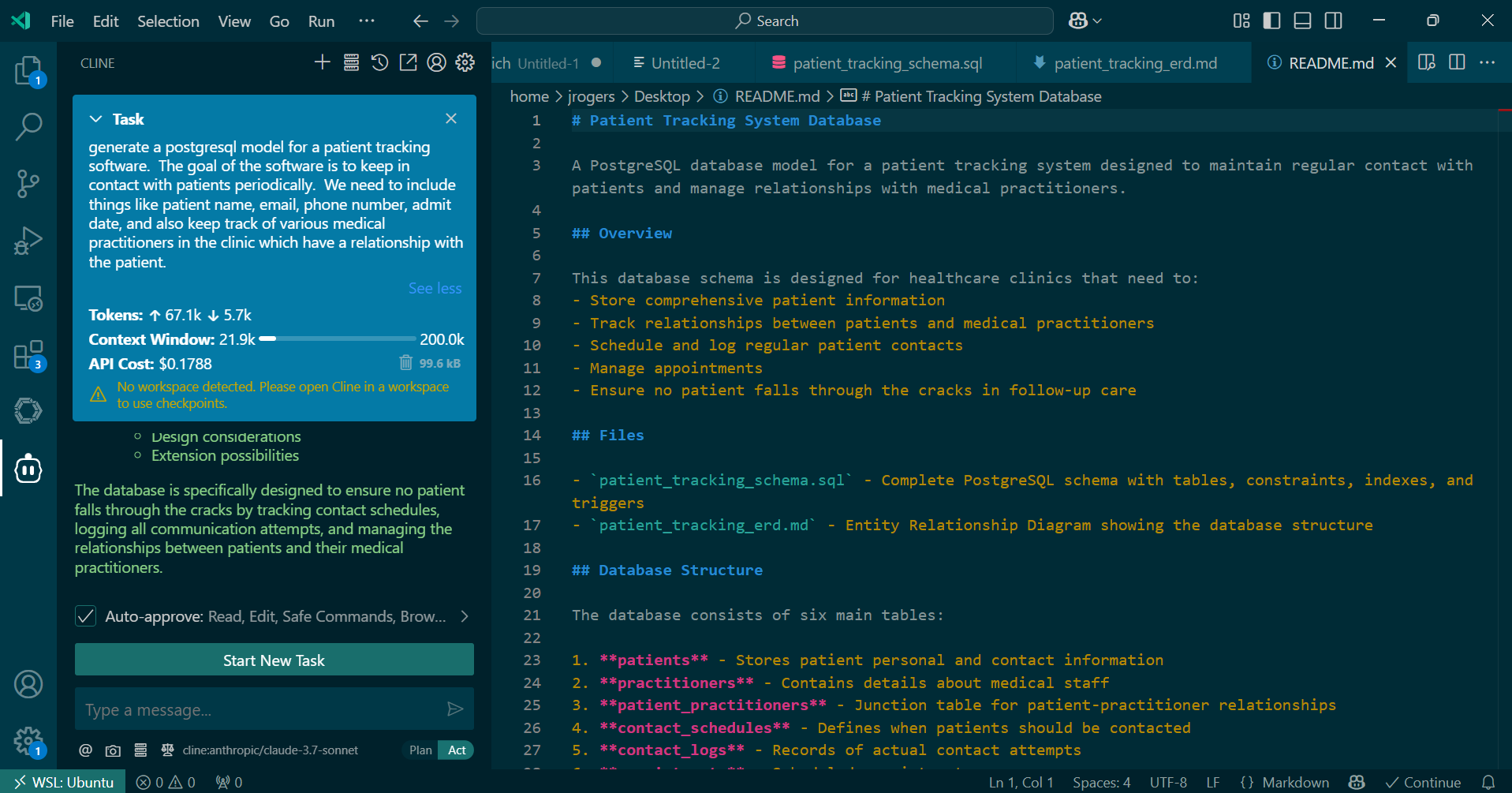
Set Up OpenRouter for Additional Models
If you prefer not to store models locally or want access to more powerful models, you can use OpenRouter:
- Visit openrouter.ai and create an account
- Generate an API key
- In Cline, change the provider API to OpenRouter
- Paste your API key and select a model (e.g., DeepSeek R1)
- Select the model of your choice. Some of the free models require that you have previously purchased 10 credits ($10 USD + tax) to use.
- Select the Done button to save the settings.
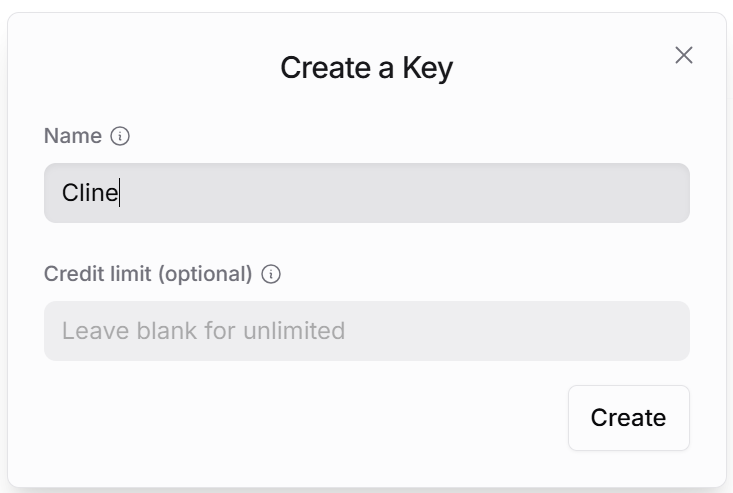
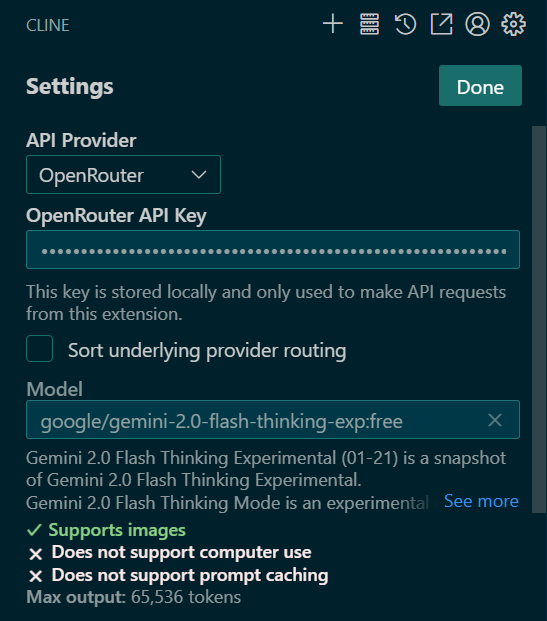
Conclusion
With this setup, I can take advantage of autocomplete, or even do one-shot code generation with a well written prompt. Continue.dev allows me to leverage my locally hosted LLM to review snippets of code, or squash bugs. With Cline, I can quickly scaffold code and models for a new project.
The best part is that you can use this setup with free, local models via Ollama, or connect to models through OpenRouter, giving you flexibility based on your needs and resources.
